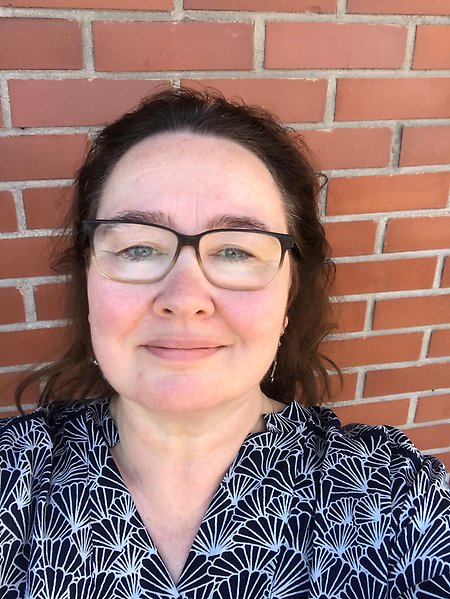Annika Björnsdotter Teppo
Researches the post-apartheid lives of white South Africans

Annika Björnsdotter Teppo
The interest in studying "race" led Annika to South Africa as field of reserach. For more than 25 years, she has researched various aspects of the lives of white South Africans in the post-apartheid era, with a focus on religiousity and kinship, to name a few topics. In 2022, Annika was appoined Professor of Cultural Anthropology at Uppsala University. She is also working at Univesity of Helsinki in Finland.
Annika is Professor of Cultural Anthropology at the Department of Cultural Anthropology and Ethnology at Uppsala University and Docent at the Faculty of Social Sciences, University of Helsinki. In 1991, she started studying cultural anthropology which quickly made her love the discipline. Her masters’ thesis (1996) examined racial hygiene study books printed in Nazi Germany mostly in the 1930s. The interest in the study of ‘race’ made Annika to choose the newly liberated South Africa as a field site for her doctoral research.
She started her fieldwork in 1997 in a ’poor white’ area in Cape Town, while studying social anthropology at the local Stellenbosch University. After four years, she returned to University of Helsinki to complete and defend her thesis in 2004. Following her doctoral dissertation, she worked on multiple research projects, among them a study on Finnish prisons, while carrying on with her work on South African whites. In 2007, the Academy of Finland granted her a three-year post-doc position to work on new, alternative forms of religion in South Africa. The same year, she was granted the title of docent at the University of Helsinki. In 2012, she was appointed the leader of the Urban Dynamics research cluster at the Nordic Africa Institute. Since 2022, Annika has held a position of a full professor at the Department of Cultural Anthropology and Ethnology at Uppsala University where she teaches, and carries on with her research on white South Africans.
Annika’s present research project is titled "Fragile environments, strong families - South African Afrikaners perseverance in an era of uncertainty," and it is funded by Riksbankens Jubileumsfond. The project investigates white Afrikaner families of Western Cape, more specifically how the families navigate a post-apartheid era, when all South Africans have been exposed to many vulnerabilities in their daily lives. These include the deteriorating infrastructure, economic and environmental issues, in addition to crime and poverty. Yet, even amongst all these challenges, white South Africans have managed to improve their income levels. Annika's research examines how the family structure and social networks contribute to this success. How do people support each other? What issues do they face? What is the significance of the tight kinship organization of their extended families? How are the local resources redistributed within their social networks, and how are their family bonds reflected in the surrounding society?
Just one ethnographic example of this redistribution of resources revolves around fruit farming. In the towns of Western Cape area, cultivation of fruits and vegetables plays a significant part in the economy. Through their social and family networks, some families can gain access to produce which does not meet the strict standards for packaging. The ways this “extra” produce is shared tells volumes of the local networks, and how family relationships and social networks form the sharing process. What are the favors and counter-favors keeping these networks functioning, when the money economy no longer defines the rules of reciprocity?
Annika’s latest book, "Afrikaners and the Boundaries of Faith in Post-Apartheid South Africa” (2022), was published with Routledge. The book examines the shifting moral and spiritual lives of white Afrikaners in South Africa after apartheid. Having worked in South Africa for more than 25 years, and while still busy working with a new book, in the future she also aims to develop research projects closer to home, in Sweden and Finland.
Text: Hossam Sultan, year 2021
